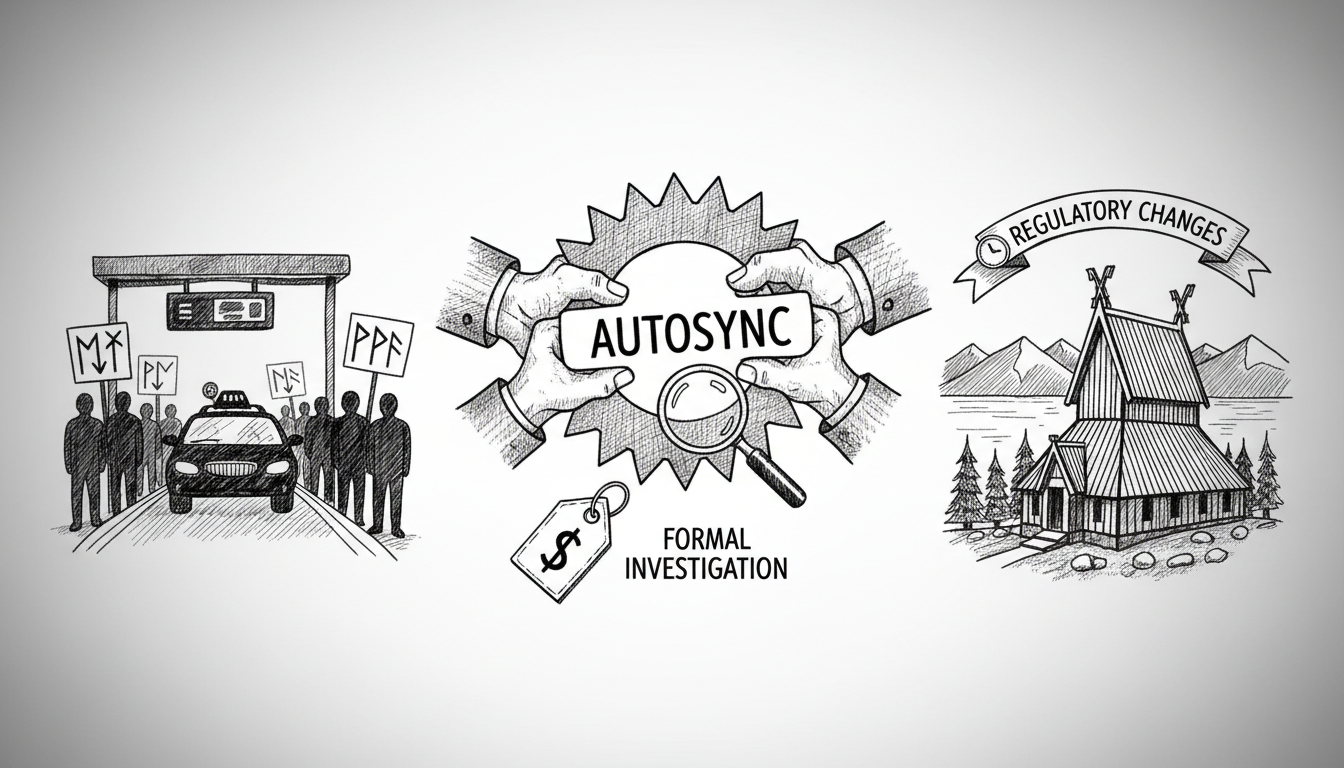Norway's largest automotive association is demanding answers from toll road operator Autosync over controversial subscription changes. The Norwegian Automobile Federation sent a formal letter this week representing its 500,000 members. They question why Autosync is doubling monthly fees while automatically moving customers to premium plans.
NAF press chief Ingunn Handagard expressed strong concerns about the company's approach. Many members report frustration about the automatic transfer to expensive solutions without clear consent. The price increase moves from 60 to 120 kroner annually per vehicle starting in the new year.
This controversy emerges just months before regulatory changes take effect in March. New rules will require companies to offer basic agreements covering only hardware and delivery costs. The government intervention aims to create transparency about what major issuers can charge for toll tag distribution.
Handagard suggests Autosync appears to be anticipating these regulatory changes. She questions why the company isn't placing customers on the most affordable option instead. The automatic enrollment in premium plans raises concerns about consumer choice and transparency.
Communication methods have drawn particular criticism from the consumer organization. Autosync sent customer notifications with subject lines stating 'you don't need to do anything.' This approach may mislead customers who actually need to take action to avoid unwanted monthly payments.
The NAF letter emphasizes that many consumers might not notice the doubled prices. They could end up paying ten kroner monthly without understanding what they're actually purchasing. The organization expects Autosync to reconsider its agreement structure and confirm existing customers won't be automatically transferred.
Commercial director Svein Skovly responded that Autosync received the NAF letter. The company believes its changes benefit many drivers, including NAF members and other motorists. He promised to provide specific details about positive impacts once they can quantify the effects properly.
Transport Minister Jon-Ivar Nygård has reacted strongly to Autosync's new subscription model. The Consumer Authority has opened a supervision case against the company. Meeting minutes reveal possible regulatory violations being investigated.
During discussions with regulators, Autosync proposed correcting information provided to customers. This could affect the assessment of negative sales practices but raises questions about the legality of the price increase itself.
The most serious potential sanction involves Autosync losing its authorization to issue toll tags. Only the Norwegian Public Roads Administration holds this authority. They're currently evaluating Autosync's announced terms against upcoming regulatory changes.
Division director Kari Johanne Hjeltnes confirms dialogue with the Consumer Authority continues. Both agencies recognize their overlapping responsibilities in this matter. The Roads Administration monitors how Autosync's terms align with forthcoming regulation adjustments.
This situation highlights Norway's ongoing challenges with electronic toll systems. The country maintains extensive road networks funded through various payment schemes. Recent years have seen increased scrutiny of toll collection practices and pricing transparency.
Norwegian consumers generally accept road tolls as necessary infrastructure funding. However, they expect fair pricing and transparent communication from service providers. The Autosync case tests these expectations amid evolving regulatory frameworks.
International observers should note Norway's comprehensive approach to transportation funding. The country combines toll roads with other measures to maintain its extensive highway network. This case demonstrates how consumer protection mechanisms function within Norway's market economy.
The outcome could influence how other toll operators structure their subscription models. It may also affect upcoming decisions about road funding mechanisms nationwide. The situation remains developing as regulatory investigations continue.

